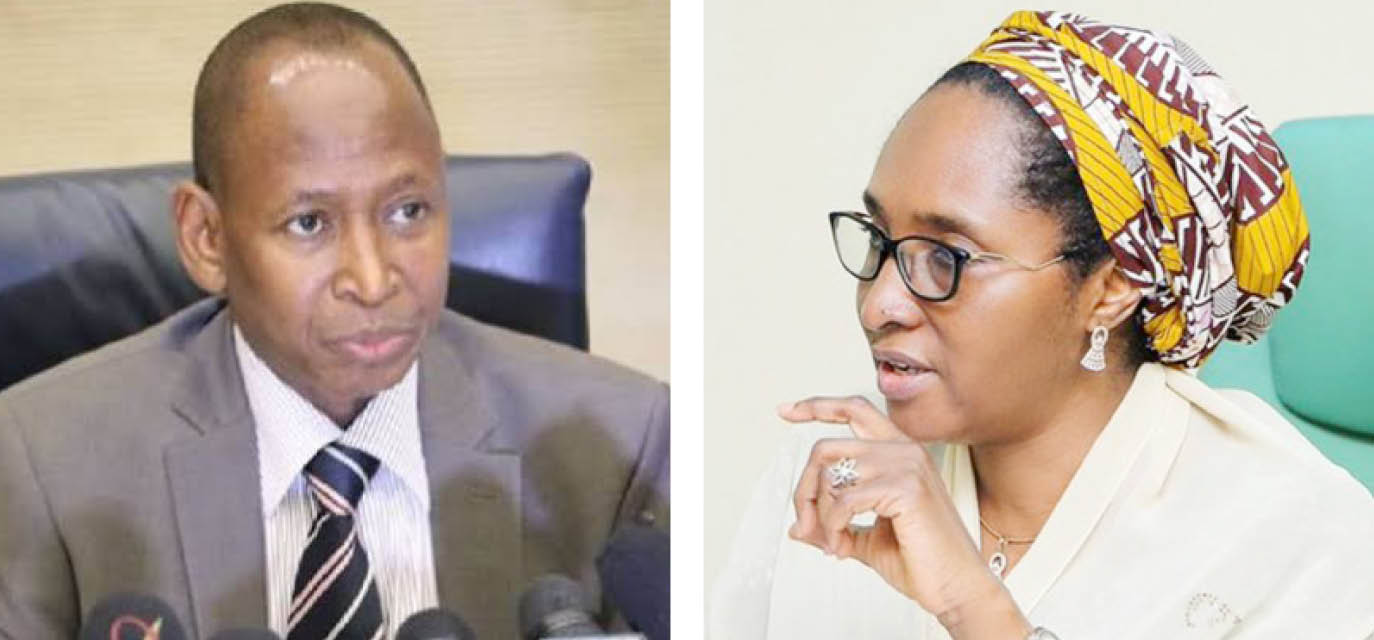Six years into the full-scale implementation of the Treasury Single Account (TSA) aimed at ensuring greater accountability of government resources and blocking leakages, the revenue accruing to the government still bleeds Daily Trust findings show.
President Muhammadu Buhari had on August 7, 2015, directed that every Federal Government Ministry, Department or Agency (MDA) pay into a Treasury Single Account (TSA) for all government revenues, incomes, and other receipts.
- NIGERIA DAILY: How Misinformation Puts Some Nigerians At Health Risk
- APC Governors meet as crisis over convention deepens
According to the directive, this measure was specifically aimed at promoting transparency and facilitating compliance with sections 80 and 162 of the 1999 Constitution.
The directive said all receipts due to the federal government or any of its agencies must be paid into TSA or designated accounts maintained and operated in the Central Bank of Nigeria (CBN), except otherwise expressly approved.
Thus, the TSA is a unified structure of government bank accounts that gives a consolidated view of government cash resources.
The TSA is part of the Public Financial Management (PFM) reforms under the World Bank-funded Economic Reforms and Governance Project (ERGP) adopted in 2004 but could not be fully implemented until when President Buhari took over.
The PFM reforms were in part designed to address impediments to effective cash management within the federal government.
Daily Trust reports that before the implementation of the TSA came into effect, many government agencies maintained dozens of accounts in different banks.
Also, heads of such agencies had absolute control over such accounts and spend with executive feat. In some cases, some of them used such accounts as conduits for syphoning monies they generated from the services they offered or statutory funds received.
It was also difficult for anti-corruption agencies or external auditors to track such infractions.
However, the framers of the TSA said when fully implemented, it will block such leakages, enhance transparency and help government track incomes and expenditures for the betterment of the citizens.
Long way to go
Our correspondent reports that in spite of the optimism over its efficacy, the TSA has not completely stopped the leakages in government finances as evident in the way some government officials admitted.
If anything, the leakages still happen, and on a large scale too.
Some MDAs officials who spoke to our correspondent under the condition of anonymity said civil servants have found dubious means of circumventing the TSA especially in the manner they handle expenditure.
Majority of them said the popular way the heads of agencies and civil servants breach the TSA system is by approving and paying money into private accounts of civil servants to pay for services provided to the MDAs rather than direct transfer to beneficiaries.
“A lot of civil servants have their accounts registered in the GIFMISS payment system authorized by the government. These accounts are usually to bring out money from government coffers for services provided to the government. Some payment runs into millions of naira,” one of our sources said.
According to him, this situation has given room for corruption as government officials inflate the payments.
He also said the TSA has not significantly improved public finance management and accountability.
“What the TSA is doing so far is just aggregating the government incomes but the expenditure is still mired with corruption,” the source said.
A staff in the Office of the Accountant-General of the Federation (AGF) who also didn’t want to be identified said they have noticed the infractions and abuse of the TSA.
He also said they have received reports of some directors and permanent secretaries being part of the racket.
He said except for capital expenditure and big talent transactions, the bulk of payments for services are done through private accounts of civil servants.
He said with this system, it was easy to inflate payments.
According to him, it was easy to even withdraw funds for jobs not done once there was a memo and approval for the payments.
He alleged that people in authority were aware of some these infractions but haven’t had the courage to stop the racket.
What FG has done
Daily Trust reports that mindful of the obvious leakages, the federal government recently inaugurated the Reconstituted Treasury Single Account Implementation Structures; namely, TSA Supervisory Board and Inter-Ministerial TSA Implementation Committee.
TSA Supervisory Board had the minister of finance, budget, and national planning as the chairman while the accountant-general of the federation is the deputy chairman.
Other members included the deputy governor (Operations) of Central Bank of Nigeria (CBN), the director-general, Debt Management Office (DMO), the representative of the secretary to the government of the federation, the chairman, Federal Inland Revenue Service (FIRS), the chief financial officer, NNPC, the director-general, Bureau for Public Service Reforms, the auditor-general for the federation while the director, Treasury Single Accounts OAGF is to serve as its secretary.
The committee’s terms of reference included providing overall broad policy guidance for the TSA, receiving and considering reports from Inter-Ministerial TSA Implementation Committee, considering and approving recommendations from TSA Implementation Committee, and resolving issues that may be escalated to it by the implementation committee.
While inaugurating the committees, the Minister of Finance, Budget, and National Planning, Mrs Zainab Ahmed said the TSA was improving government revenue position.
She said “using the TSA platform, we have since automated direct deduction of operating surplus of eligible agencies. At the last count, 16 agencies are covered and more will be added in the coming months. The impact on government internally generated revenue performance has been impressive. Between January and October 2021, a total of N86 billion in revenue was generated through this means.
“Also, the aggregate collection of N7 trillion was made from 22 million transactions between January and November, 2021 while N19 trillion worth of payments were processed from 20 million transactions within the same period.”
However, the minister also conceded that gaps exist in the impletion of the TSA and also leakages exist which is one of the many mandates the committees have to address.
In addition to the leakages of funds, she also said the government is “aware of the challenges MDAs have been facing since early December 2020 with respect to access to TSA bank statement and creation of service types for collection.”
She tasked the Inter-Ministerial TSA Implementation Committee to prioritize solutions to these challenges so that MDAs could reconcile and prepare their end-of-year financial statements in good time.
The Account-General of the Federation Ahmed Idris also agreed revenue leakages exist but he declined to give specifics when our correspondent enquired.
When asked to speak to the specific gaps noticed in the implementation of the TSA, he said, “That is why the committee has been set up. The committee to review the TSA and give a comprehensive advice on the gaps that exist.
“So, it would be circumventing the committee if I give you details,” he had told our correspondent.
He, however, said whatever gaps exist, the committee will address them and proffer more watertight solutions that will safeguard revenues.
Both the minister and the AGF declined to give data of how much passed through the TSA platform since 2015.
Our correspondent reached out to both of them for the information but they both declined to comment on it.
However, the AGF had previously told our correspondent in an enquiry for a different report that the figures in the TSA accounts changes by the minute as funds come in and go out.
‘Why FG should strengthen TSA’
Based on the quantum of resources that passes through the TSA, experts say the monitoring mechanism needs to be strengthened.
Salawu Adeku Zubairu, in his book titled ‘Treasury Single Account Policy in Nigeria’ recommended that “the monitoring and evaluation mechanism for ensuring the effectiveness of the TSA policy should be strengthened to make it watertight, especially by the OAGF and CBN (the two government agencies that are deeply involved in the implementation of the TSA policy).”
Mr David Akwu, a lecturer at the University of Nigeria Nsukka said whilst leakages might still exist in the TSA, it was evident that the initiative had improved public finances and helped the government to aggregate all its revenues in one pool.
Also commenting, Mr Paul Alaje, the Lead Economist and Enterprise Partner at SPM Professionals said, “the TSA policy has to a large extent helped to improve overall government revenue especially those that were lost at the pre-implementation of the policy. To some extent, leakages have been blocked even though we cannot say this is done completely,” he said. He also said the TSA had improved the revenue receipt of the government.”
He listed some benefits to include prompt collection, increase in government revenue and reduction in government idle funds.
Wisdom behind the TSA
Mr Sylva Okolieaboh, the director and coordinator, TSA/e-Collection, Office of the Accountant General of the Federation in a paper titled: ‘TSA in Nigeria: From concept to reality, reflection on the journey so far and vision for the future’, said TSA is a cash management tool rather than a revenue collection policy.
He said the TSA was intended to address the following impediments to FGN cash management: multiple bank accounts (over 17,000); countless dormant accounts with huge balances; inability to determine consolidated cash position of government; borrowing and incurring charges when there are idle balances in MDA accounts; lack of coordination among key fiscal agencies; poor cash planning; inability to fund government budget; non/delayed remittance of revenue/collections and over N70billion of FG funds lost to failed banks.”
He also said the TSA had now afforded the government to determine consolidated FG cash position; reduction in ways & means charges from N7b billion /month to zero; significant improvement in FG liquidity position; better control and oversight over MDA operations; improved revenue collection mechanism through e-collection and elimination of cash handling costs.

 Join Daily Trust WhatsApp Community For Quick Access To News and Happenings Around You.
Join Daily Trust WhatsApp Community For Quick Access To News and Happenings Around You.


